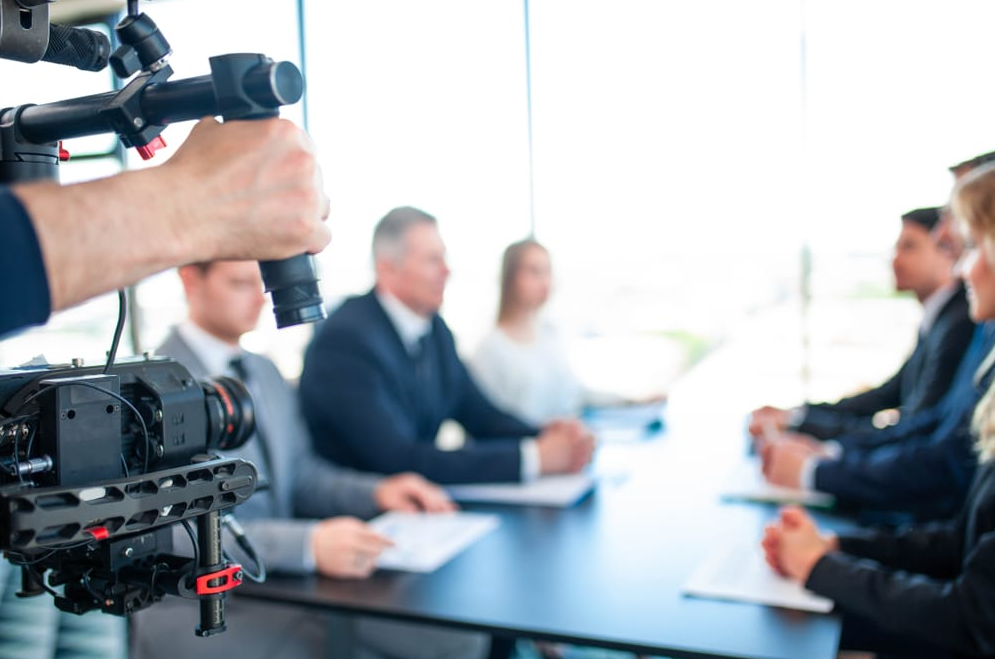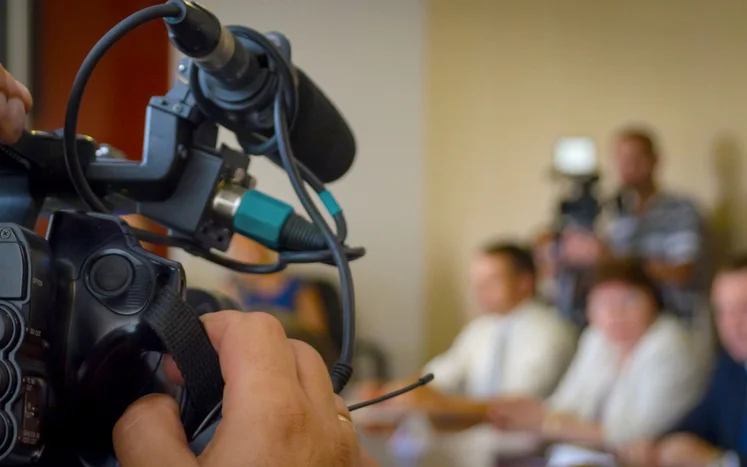Affordable Legal Videography Services for Attorneys.
The Role of Lawful Videography in Depositions and Tests
Legal videography has actually arised as a crucial device in both depositions and tests, supplying a diverse method to documenting witness testaments. As lawful experts progressively recognize its worth, it motivates a much deeper evaluation of how these aesthetic documents can influence juror perceptions and test end results.
Value of Legal Videography
Legal videography plays a crucial role in the paperwork and discussion of depositions and tests. This specialized area combines technical skills with legal expertise to develop a trusted record of process that can substantially influence instance end results. The aesthetic aspect of legal videography enhances the understanding of witness testament, allowing jurors and courts to observe not only the talked words yet additionally the temperament, emotions, and body language of the witnesses.

The relevance of lawful videography expands beyond the court room; it also plays an essential function in protecting evidence for future referral, whether for appeals or additional lawsuit. Its integration right into the legal process is crucial for ensuring a fair and accurate depiction of the facts, ultimately contributing to the search of justice.

Process of Legal Videography
While catching the subtleties of depositions and tests, the process of legal videography involves a number of essential steps that ensure high-quality, precise recordings. At first, a specialist lawful videographer prepares by evaluating the instance materials and recognizing the particular demands of the deposition or trial. This preparation includes acquainting themselves with the individuals and the context, which aids in catching important information.
On the day of the recording, the videographer establishes up the necessary tools, which commonly consists of high-def video cameras, microphones, and proper illumination. Making certain optimal angles and audio high quality is important, as it directly impacts the effectiveness of the recording. The videographer interacts with attorneys and participants to develop protocols, making certain that everybody recognizes the recording process.
During the deposition or test, the videographer meticulously tape-records the process, paying close interest to both verbal and non-verbal hints. legal videography. This includes recording the attitude and reactions of witnesses and lawyers. After the session concludes, the videographer may edit the video footage for quality and conformity with lawful standards, producing an end product that accurately mirrors the process for future recommendation and usage in lawful contexts
Advantages in Depositions
The unification of videography in depositions supplies various advantages that improve the general procedure of gathering proof. One primary advantage is the capacity to catch witness testaments with visual and auditory integrity, supplying a more precise depiction of the witness's temperament, tone, and body movement. This multidimensional strategy permits attorneys and juries to evaluate reliability much more successfully than conventional written records alone.
Additionally, videographed depositions work as an effective tool for protecting statement. Needs to a witness ended up being find more information inaccessible for test, their recorded deposition can be played in court, making certain that their evidence continues to be accessible and appropriate. This element dramatically decreases the threat of losing critical details that could affect instance outcomes.
Furthermore, using lawful videography promotes better prep work for attorneys. Assessing video clip footage permits legal groups to analyze he said and refine their strategies, recognizing toughness and weaknesses in their instances. This preparatory advantage can cause more engaging discussions in court.
Last but not least, videography enhances the general professionalism and reliability of the deposition procedure, instilling confidence in clients regarding the thoroughness of their lawful depiction. By leveraging innovation, attorneys can dramatically improve the effectiveness of depositions.
Impact on Trials
In several tests, the integration of videography can dramatically affect the discussion of proof and the jury's perception. Legal videography catches witness statements and critical evidence in a dynamic format, enabling jurors to engage with the material on numerous degrees. This aesthetic component enhances the narration facet of a trial, giving context and emotional resonance that standard text-based proof may lack.
In addition, video recordings can offer as powerful tools for impeachment throughout interrogation. When discrepancies emerge between a witness's prior declarations and their court testimony, video proof gives an objective recommendation that can guide jurors' opinions. This immediacy and quality can reinforce the integrity of a celebration's narrative while all at once weakening opposing debates.
In addition, making use of videography can help improve complex info, making it more available to jurors who might have a hard time to grasp elaborate details provided exclusively with verbal testimony. By incorporating visuals with acoustic info, legal videography can improve retention and understanding, inevitably influencing the court's decision-making procedure. The impact of videography in tests extends past simple looks; it plays a vital role in shaping the legal landscape and results.
Future Trends in Legal Videography
As we look toward the future of lawful videography, numerous emerging fads promise to reshape its function within the court room. One significant fad is the useful source assimilation of expert system (AI) in video clip analysis and modifying - legal videography. AI can streamline the process of recognizing crucial moments in recorded depositions, allowing lawyers to rapidly access appropriate content, thus boosting performance in situation preparation
In addition, the increase of digital reality (VR) and enhanced reality (AR) technologies is expected to transform just how jurors experience evidence. By submersing jurors in a simulated environment, these modern technologies can provide an extra extensive understanding of intricate scenarios, leading to even more educated deliberations.

Additionally, the raising demand for remote depositions, accelerated by the COVID-19 pandemic, will likely proceed. Legal videographers will certainly need to adapt to brand-new software application and platforms to make sure top quality recordings in online setups.
Finally, the growing focus on data security will certainly necessitate more stringent protocols for storing and sharing video clip evidence. As the lawful landscape progresses, legal videographers have to stay abreast of these trends to preserve their importance and effectiveness in the judicial process.

Verdict
In recap, legal videography serves an essential function in the judicial procedure, boosting the integrity of depositions and trials. As technology proceeds to develop, lawful videography is poised to additional transform its duty within the legal landscape.